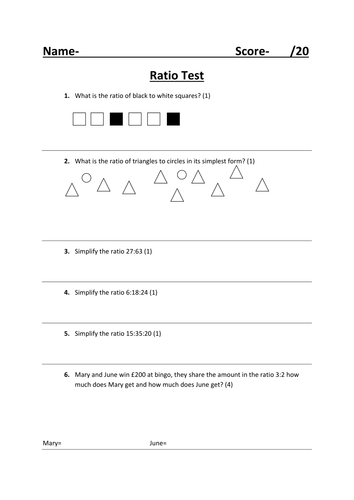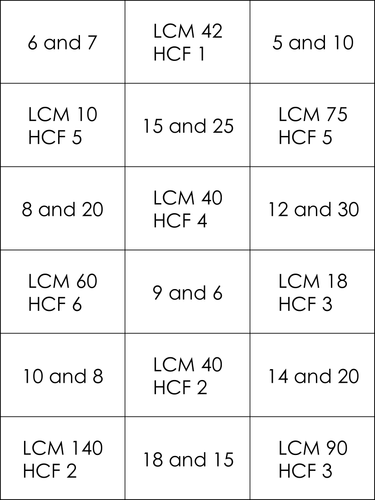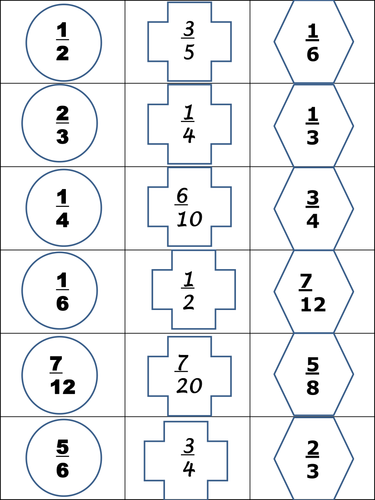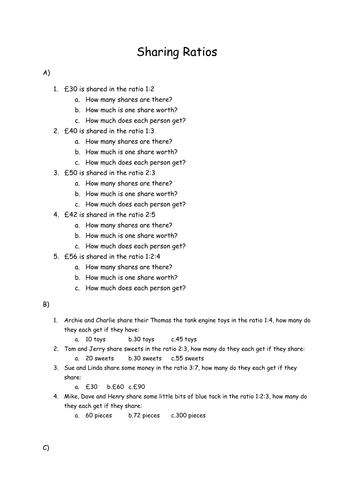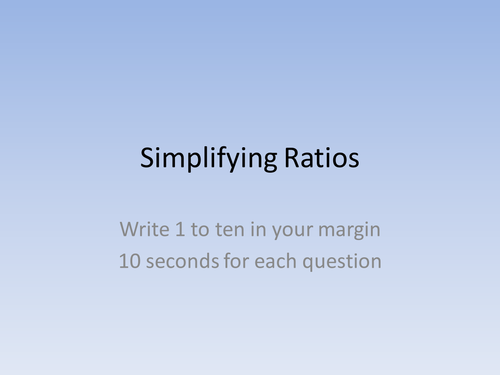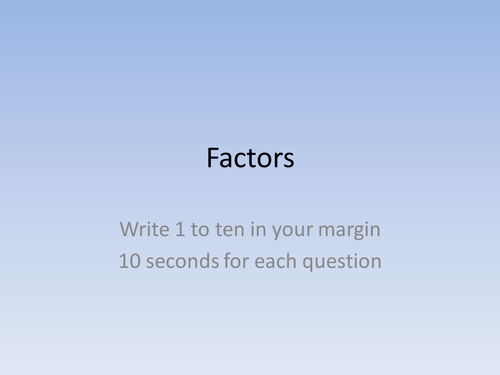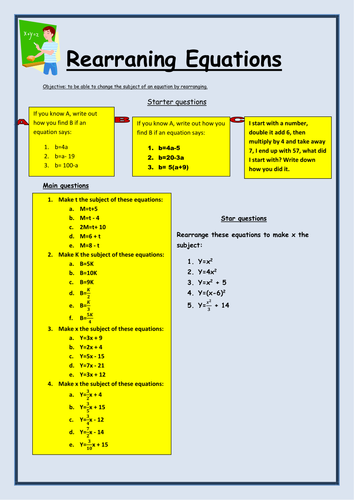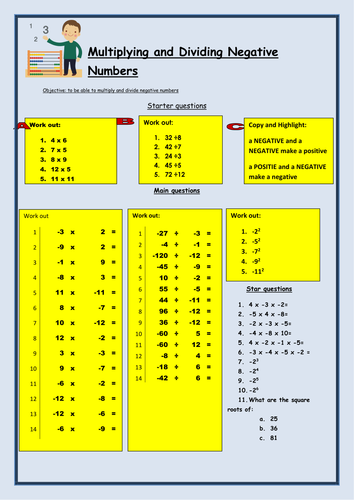
623Uploads
5486k+Views
2901k+Downloads
Mathematics

KS3 Sequences Multiple Choice Starter
A KS3 PowerPoint with 10 questions on sequences, each question asks for the next term, includes decimals and negatives, very simple. Good for starter or plenary for the start of sequences topic.

KS3 - Addition of decimals plenary test
A PowerPoint with 10 questions on a timer with answers at the end. The topic is adding decimals and is suitable as a plenary for a KS3 class.

KS3 / GCSE - Ratio Questions - Test - Revision
A worksheet test on ratio and direct proportion ideal for KS3 and GCSE students. Can be printed out and given to students or used on the IWB.

Powers starter / plenary test
10 question with ten seconds for each, each question is a number raised to another number answers at the end

KS3 - HCF and LCM Matching Cards
This is a PowerPoint with cards where students have to match a card with two numbers to a card wit ha highest common factor and lowest common multiple. Great revision for HCF and LCM.

KS3 - Ordering Fractions Cards - Revision
A PowerPoint with a few different activities with ordering fractions cards. One has 3 questions to order but can be mixed to create new question, one has a set of 18 cards to order by finding LCM, read notes on slides for more information. Hope you find them useful.

Simplifying Ratio starter / plenary quiz
a ten question quiz on simplifying ratios where student have 10 seconds to answer a question, answers are at the end so easy to mark

KS3 Multiplying Decimals Test
A PowerPoint with 10 questions on multiplying decimals, ten seconds for each, answers at the end, good for starter / plenary.

Index laws plenary / starter
A quick 10 question test on multiplying, dividing and bracket rules. ten seconds for each question, answers at the end

Factors test
10 questions asking students to list down all the factors of a number, but they only have 10 seconds for each one, answers at the end

Negative numbers starter / plenary quiz
ten question on adding and subtracting negative numbers, 10 seconds for each, then answers at the end, something nice to through up at the end of a lesson

KS3 Gradient and Intercept Matching Cards
A PowerPoint with some cards where students have to match the equation of a straight line to the correct gradient and intercept, some of the harder ones include rearranging and dividing through by a common factor. Ideal for KS3 students.

Rearranging Equations Worksheet - KS3 / GCSE
A KS3 / GCSE worksheet with starter main and extension which includes quadratic equations.

KS3 Multiply and Dividing by Negative Numbers
A word document worksheet with a starter main and extension for multiplying and dividing by negative numbers. Ideal for KS3 students.

Ratio Multiple Choice Starter - KS3
A KS3 PowerPoint activity with 10 multiple choice questions on sharing in ratios.

Adding Fractions Cards - KS3 / GCSE
A PowerPoint with a set of cards with fractions on which can be arranged to make sums, two fractions, then two equivalent fractions with common denominator, then the answer. Students have to try to find as many sums as possible by using all the cards.

Cancelling / equivalent fractions matching cards
A set of 36 cards for students to try to sort into piles by cancelling them down to find equivalnet fractions.

Special number cards
Set of cards with numbers. Students have to try and split them into 4 groups. Groups are primes, squares, cubes, triangular numbers, might be more interesting to not tell them the four groups andd see what they come up with first.

Percentage Increase/Decrease Matching Cards
A PowerPoint with a set of cards where students match statements like 'increase by 10%' to how they would do it on a calculator 'x 1.1'. Ideal for GCSE students.



